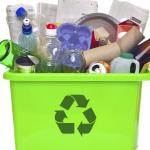
As of 28 September 2015 manufacturers and importers of certain products and packaging are formally required to either recycle wastes generated from the use of such products themselves or to sign a contract for recycling with a recycling operator.
If manufacturers and importers do not perform the recycling themselves, they must pay a fee which is called “environmental charge”.
Manufacturers and importers may perform recycling themselves by either:
- using their own infrastructure and resources for recycling; or
- entering into an association (union) with other product manufacturers/importers specially created by for the purpose of achieving the set collection/utilization targets (a recycling scheme).
Products and packaging impacted by the Extended Producer Responsibility in Russia
The list of products and packaging to which this requirement applies was adopted by Direction No. 1886-r of 24 September 2015. The list of the products includes electronic equipment, textiles (e.g. bedding), carpets, most types of clothing, fixtures (e.g. wooden doors and window frames), wood packaging, wooden barrels and crates, paper and cardboard packaging, stationery (e.g. notepads), oils (motor, diesel, insulation, hydraulic, etc.), tyres, some rubber goods (e.g. mats), plastic packaging bags, plastic bottles, plastic homeware (e.g. toilet seats, bath tubs, etc.), plastic crockery (e.g. dishes), plastic stationary, glass packaging and glass goods (e.g. window glass), glass bottles (including those for nonfood storage), metal packaging (e.g. aluminum barrels), accumulators and batteries, lightbulbs and oil filters.
Environmental charge
The environmental charge rates have been set for each type of product and packaging by Decree No. 284 of 9 April 2016. The fees have been set in roubles per one tonne. For example, for clothes the fee is 11791 roubles for carpets – 16304 roubles for wooden packaging – 3066 roubles, for rubber tyres – 7109 roubles, for electrical and electronic office and domestic equipment – 26469 roubles, for light metal packaging – 2423 roubles, etc.
The rules for the calculation and payment of the environmental charge were adopted by Decree No. 1073 of 8 October 2015. The Decree set out the first deadline of 15 October 2015. By this date, all manufacturers and importers of the listed products were formally required to submit a report on the payment of the environmental charge. However, due to the time constraints and the obvious difficulties for the companies concerned to fully comply with this requirement the Government has set a transitional period and the collection targets for Y2015 are set as zero.
Collection targets
The collection targets for 2015-2017 have been set by Governmental Direction No. 2491-r of 4 December 2016. The targets are set in percentages. The collection targets for 2015 have been set as “0” for all products.
For example, the targets for paper and cardboard packaging have been set as 0 for 2015, as 10% for 2016 and as 20% for 2017. For plastic bottles the targets have been set as 10% for 2016 and 15% for 2017.
Who must pay the environmental charge
The environmental charge is payable by the manufacturers and importers of products and packaging listed by Direction No. 1886-r of 24 September 2015.
However, for those only importing or manufacturing products not included into the list but in the packaging that is included into the list the law is not clear and no official clarification has been issued. However, according to the current market practice all such importers and manufacturers are required to submit the declaration and to pay the fee (starting from 2017), if the packaging they supply their products in, has been included into the adopted list of packaging. This means that they do not need to declare the products if they are not included into the list and only have to declare and pay for the packaging they place on the market, if such packaging is listed by Direction No. 1886-r of 24 September 2015.
Law on Industrial and Consumption Wastes
The requirement to either pay to a recycling operator or to organize the recycling process themselves was originally imposed as of 1 January 2015 by the amended Law on Industrial and Consumption Waste (Article 24.2).





